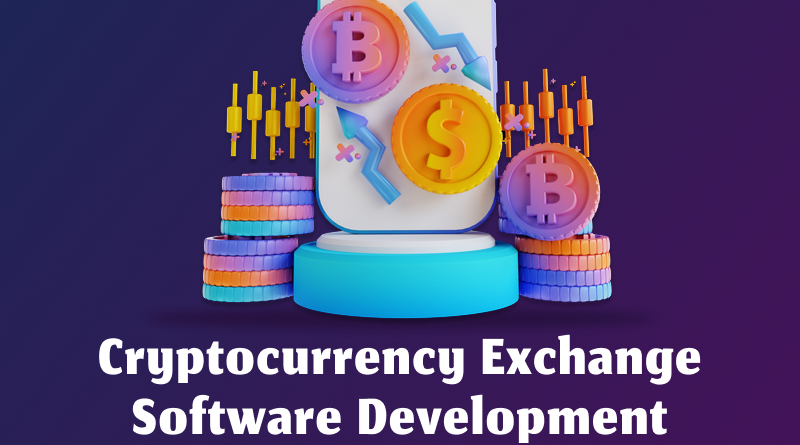The Future of Cryptocurrency Exchange Software Development: Trends and Predictions
Cryptocurrency exchange software development has played a pivotal role in the evolution and widespread adoption of digital currencies. As the world becomes increasingly digitized and decentralized, the future of cryptocurrency exchange software holds significant importance. In this article, we will explore the current trends and make predictions about the future of cryptocurrency exchange software development.
Cryptocurrency exchange software development company plays a crucial role in the growth and evolution of cryptocurrency exchanges. These companies provide the necessary expertise and technical solutions for building and enhancing the platforms that facilitate buying, selling, and trading digital assets. As we look into the future, several key trends are expected to shape the development of cryptocurrency exchange software offered by these companies.
The Rise of Decentralized Exchanges (DEX)
Decentralized exchanges, or DEX, have gained significant popularity due to their core principles of decentralization, trustlessness, and user control. DEX platforms eliminate the need for intermediaries and offer users greater control over their funds. With the advent of blockchain technology, decentralized exchanges are likely to witness further growth, enabling secure peer-to-peer transactions.
Security Enhancements
Security remains a critical concern in the cryptocurrency industry. The future of cryptocurrency exchange software development will see increased emphasis on robust security measures. Advanced encryption techniques, multi-factor authentication, and secure wallet integrations will be implemented to protect user funds and prevent hacking attempts.
Integration of Artificial Intelligence (AI)
Artificial Intelligence is revolutionizing various industries, and cryptocurrency exchange software development is no exception. AI algorithms can analyze large volumes of data, detect patterns, and identify potential security threats or fraudulent activities. Integrating AI-powered solutions in exchanges will enhance security, streamline trading processes, and provide users with personalized trading recommendations.
Increased Scalability and Speed
As cryptocurrencies gain mainstream adoption, scalability and speed become crucial factors in ensuring smooth user experiences. Future cryptocurrency exchange software will focus on implementing innovative solutions such as layer-2 scaling solutions and blockchain interoperability protocols to address these challenges. These developments will enable faster transaction processing and accommodate a growing user base.
Regulatory Compliance and KYC/AML Measures
To gain wider acceptance and establish trust, cryptocurrency exchanges must adhere to regulatory compliance standards. Know Your Customer (KYC) and Anti-Money Laundering (AML) measures will continue to play a vital role in the development of exchange software. Advanced identity verification systems and robust compliance procedures will be integrated into exchanges to ensure regulatory compliance.
Interoperability Among Different Blockchains
The future of cryptocurrency exchange software will witness greater interoperability among different blockchain networks. Cross-chain solutions will enable seamless transfer of assets between various blockchains, reducing reliance on centralized exchanges for liquidity. Interoperability will foster collaboration among different projects and unlock new opportunities for innovation.
Also Read: Built White Label Exchange Software: Empower Your Platform With Customizable Script
Enhanced User Experience and Mobile-Friendly Platforms
User experience is a crucial aspect of any software application, including cryptocurrency exchanges. Future exchange software will prioritize intuitive user interfaces, responsive design, and mobile-friendly platforms. With the increasing usage of smartphones and mobile devices, exchanges will provide a seamless trading experience on the go.
Predictions for the Future
a. Tokenization of Assets: The future will witness the tokenization of real-world assets, including stocks, real estate, and commodities. Cryptocurrency exchange software will play a vital role in facilitating the trading and exchange of these tokenized assets.
b. Decentralized Finance (DeFi) Integration: DeFi has gained significant traction in recent years. Cryptocurrency exchanges will integrate DeFi protocols, enabling users to access decentralized lending, borrowing, and yield farming directly from exchange platforms.
c. Enhanced Privacy Features: Privacy-focused cryptocurrencies and blockchain technologies will become more prevalent. Future exchange software will implement privacy-enhancing features to protect user identities and transactional data.
Conclusion
The future of cryptocurrency exchange software development looks promising, with exciting trends and predictions on the horizon. Decentralization, security enhancements, AI integration, scalability, and regulatory compliance will shape the evolution of exchange platforms. As the digital asset landscape continues to expand, cryptocurrency exchanges will play a crucial role in facilitating seamless and secure transactions.
FAQs
Q1: How can I ensure the security of my funds on a cryptocurrency exchange?
A1: To ensure the security of your funds, choose exchanges that prioritize robust security measures such as two-factor authentication, cold storage wallets, and encryption protocols. Additionally, always use unique and strong passwords and enable account notifications for suspicious activities.
Q2: What is the difference between centralized and decentralized exchanges?
A2: Centralized exchanges are operated by a central authority, and users trust the exchange to hold and manage their funds. Decentralized exchanges, on the other hand, operate on blockchain technology, allowing users to trade directly with each other without the need for intermediaries.
Q3: How will AI integration benefit cryptocurrency exchanges?
A3: AI integration can enhance security by detecting suspicious activities and potential threats. It can also provide personalized trading recommendations based on user preferences and historical data, improving the overall trading experience.
Also Read: CryptoPlay: Where Gaming and Cryptocurrency Intersect for Seamless Trading
Q4: Can I trade tokenized real-world assets on cryptocurrency exchanges?
A4: Yes, with the advancement of blockchain technology, tokenized real-world assets such as stocks, real estate, and commodities can be traded on cryptocurrency exchanges, providing increased liquidity and accessibility.
Q5: Will cryptocurrency exchanges become more mobile-friendly?
A5: Yes, as mobile device usage continues to rise, cryptocurrency exchanges will prioritize mobile-friendly platforms to provide users with a seamless trading experience on their smartphones and tablets.




